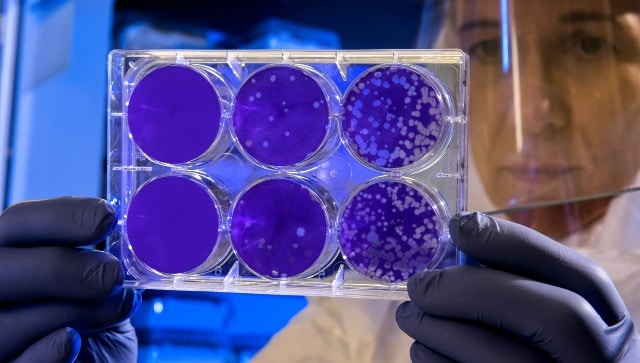
While we know more about the disease now than we did a few months back, scientists are still not able to figure out why some people are less susceptible to SARS-CoV-2 and why people experience a varying intensity of the associated symptoms, ranging from being asymptomatic to severely affected.
The findings of their study, published in the journal Informatics in Medicine Unlocked, suggest the presence of certain genes and proteins that determine the susceptibility of a person to COVID-19 and the severity of disease once it is acquired.
Once inside your body, SARS-CoV-2 enters your body cells and takes over the cellular machinery to make copies of itself.
The virus interacts with various proteins and genes inside the human body during this process.
For the study, the researchers investigated the expression profile of the human genes that interact with SARS-CoV-2, their variation by population, age and sex and in a normal (non-infected) population.
Gene expression: Most host genes interacting with SARS-CoV-2, particularly SFTPD, were highly expressed in the lungs, pointing to the unique susceptibility of the lung tissue.
SFTPD is predicted to interact with SARS-CoV-2 spike protein.
ACE2 and other proteases associated with viral entry in COVID-19 were expressed at higher levels in male gonads and gastrointestinal tract, suggesting the higher susceptibility of these tissues.
The non-coding regions help in the production of variable proteins depending on their need in body tissues by a process called splicing.
Not only in tissues but host genes interacting with SARS-CoV-2 were also found to be varying among the population.
ACE2, CLEC4G, CLEC4M and CD209 - interact with the spike protein of SARS-CoV-2.
Some proteases associated with SARS-CoV-2 entry into host cells also had multiple variants in different people.
The expression of about eight genes increased with age, suggesting the higher susceptibility of the elderly.